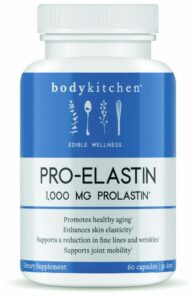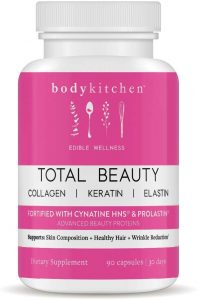Skin elasticity is your skin’s ability to stretch and bounce back to its original shape (like elastic, hence the name).
However, skin elasticity tends to wear out over time – especially if your skin is exposed to harsh conditions – so what can you do to prevent this?
The cosmetics industry has been pushing anti-aging products for centuries, but how effective are they, and is there a better way to keep wrinkles at bay?
Your skin is the largest organ in (or should that be on?) your body, and it helps protect you against physical damage, sunlight, and cold.
However, your skin will wear out and lose elasticity over time, though there are some things you can do to slow this process, such as taking elastin supplements or paying for cosmetic procedures like chemical peels.
Loss of skin elasticity (also known as elastosis) is a natural part of the aging process, though it can also be accelerated by lifestyle or environmental factors, such as:
- Sun Exposure
- Air Pollution
- Poor Nutrition
- Smoking
However, you can prevent or reduce elastosis and improve your skin elasticity in many ways, which we’ll discuss in this article.
Table of Contents
- What Supplements Help Tighten Skin?
- Best Elastin Supplements
- How Do Elastin Supplements Really Work?
- What Foods Are High in Collagen and Elastin?
- Elastine Supplement vs Food: Which is Better?
- Foods That Contribute to Collagen Production
- What Are The Benefits of Taking Elastin?
- Are There Downsides to Elastin Supplements?
- Conclusion
What Supplements Help Tighten Skin?
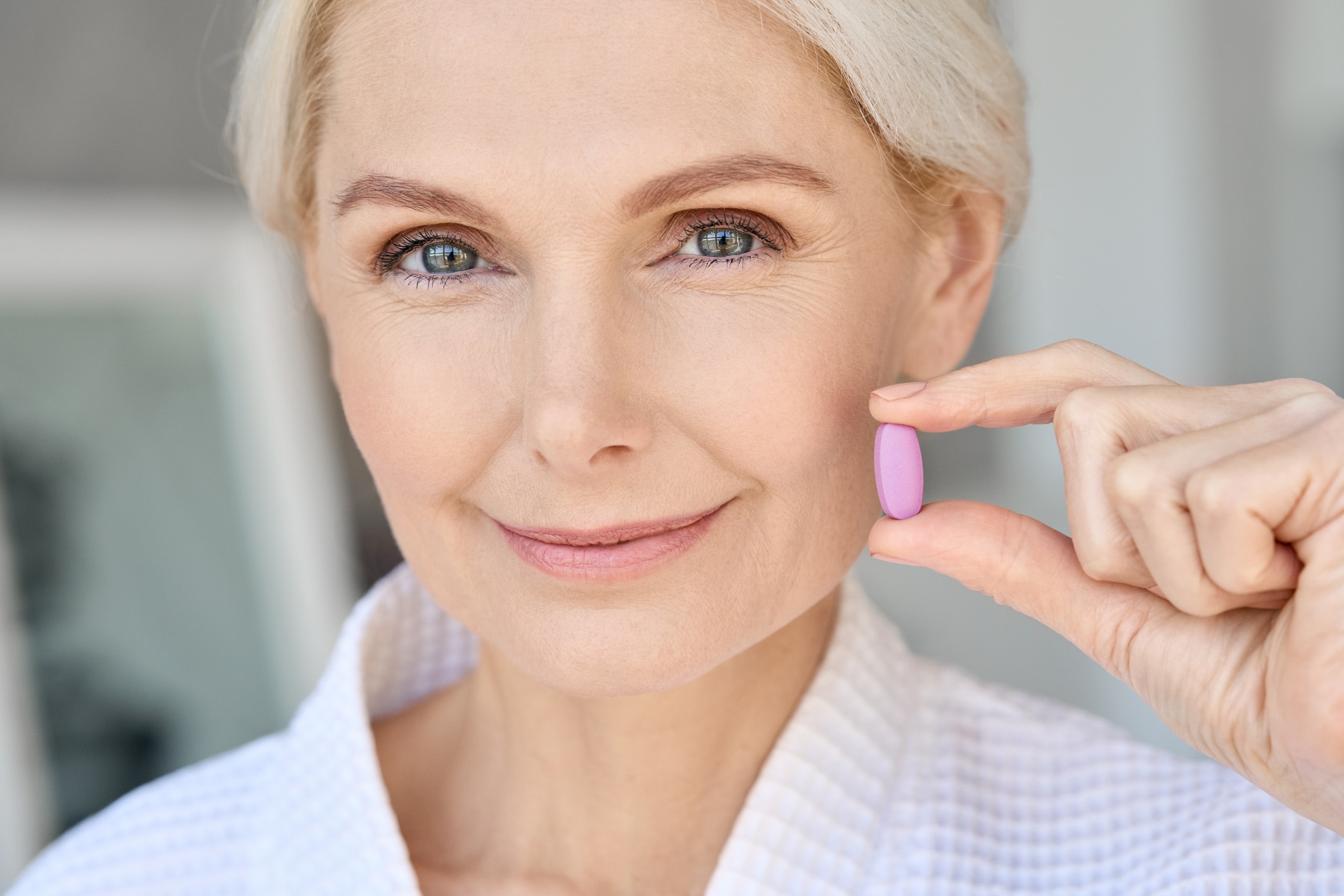
Because elastosis is mainly caused by the loss of collagen and elastin in your skin, the most obvious solution is to replace these compounds with collagen or elastin supplements.
Fortunately, you don’t have to shell out hundreds of dollars on designer moisturizer to get a little more collagen in your life, as there are a wide variety of supplements that can improve your skin elasticity, including:
Collagen supplements
Collagen is the most abundant protein in your body and has many roles – from helping your blood clot to keeping your skin stretchy – though it is often associated with skin elasticity.
Some studies have found that you can replenish your collagen levels by taking hydrolyzed collagen supplements, improving your skin’s elasticity and firmness in months.
Retinol and Retinoids
Retinol is a form of Vitamin A commonly used in over-the-counter skincare products like facial creams, while more potent retinoids are only available by prescription.
Both have proven effective at restoring skin elasticity, though you may want to pair a retinol face cream with elastin supplements or similar if you’re unable or unwilling to pay for potent prescription retinoids.
Hyaluronic acid
Commonly used in anti-aging cosmetic products, hyaluronic acid is a naturally occurring substance found in the skin’s connective tissue that helps maintain moisture in your skin.
Hyaluronic acid is depleted by UV radiation and the aging process, though it can be replenished by using topical products or supplements containing hyaluronic acid.
Best Elastin Supplements
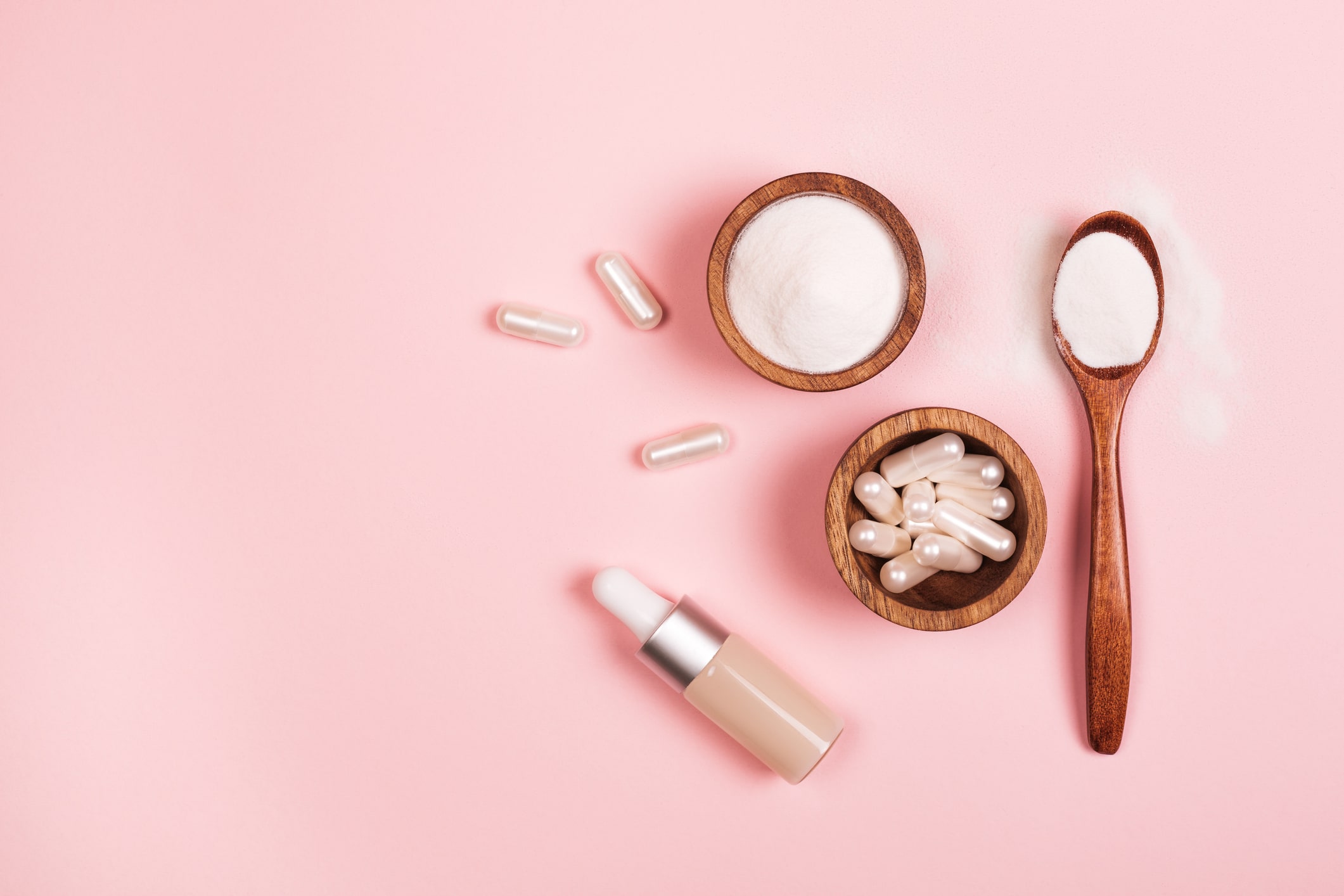
Whether you want to avoid the saggy specter of elastosis or preserve your joint and cardiovascular health with plenty of elastin and collagen, you need high-quality supplements.
To help you keep your collagen levels topped up, we’ve created a shortlist of our favorite elastin supplements:
1. Body Kitchen – Pro-Elastin
With a hefty 1000mg of elastin peptides in every two-capsule serving, Body Kitchen’s elastin supplements are some of the most potent on the market.
However, since these supplements are made with elastin from marine sources, people with severe seafood allergies might want to stay away.
2. Body Kitchen – Total Beauty
We’ve saved the best for last, as these supplements are packed full of a massive range of ingredients designed to improve your skin health comprehensively.
With added biotin, hyaluronic acid, vitamin B6, and pantothenic acid, these elastin supplements have everything you need to improve your skin health, though the elastin is also derived from marine sources.
How Do Elastin Supplements Really Work?
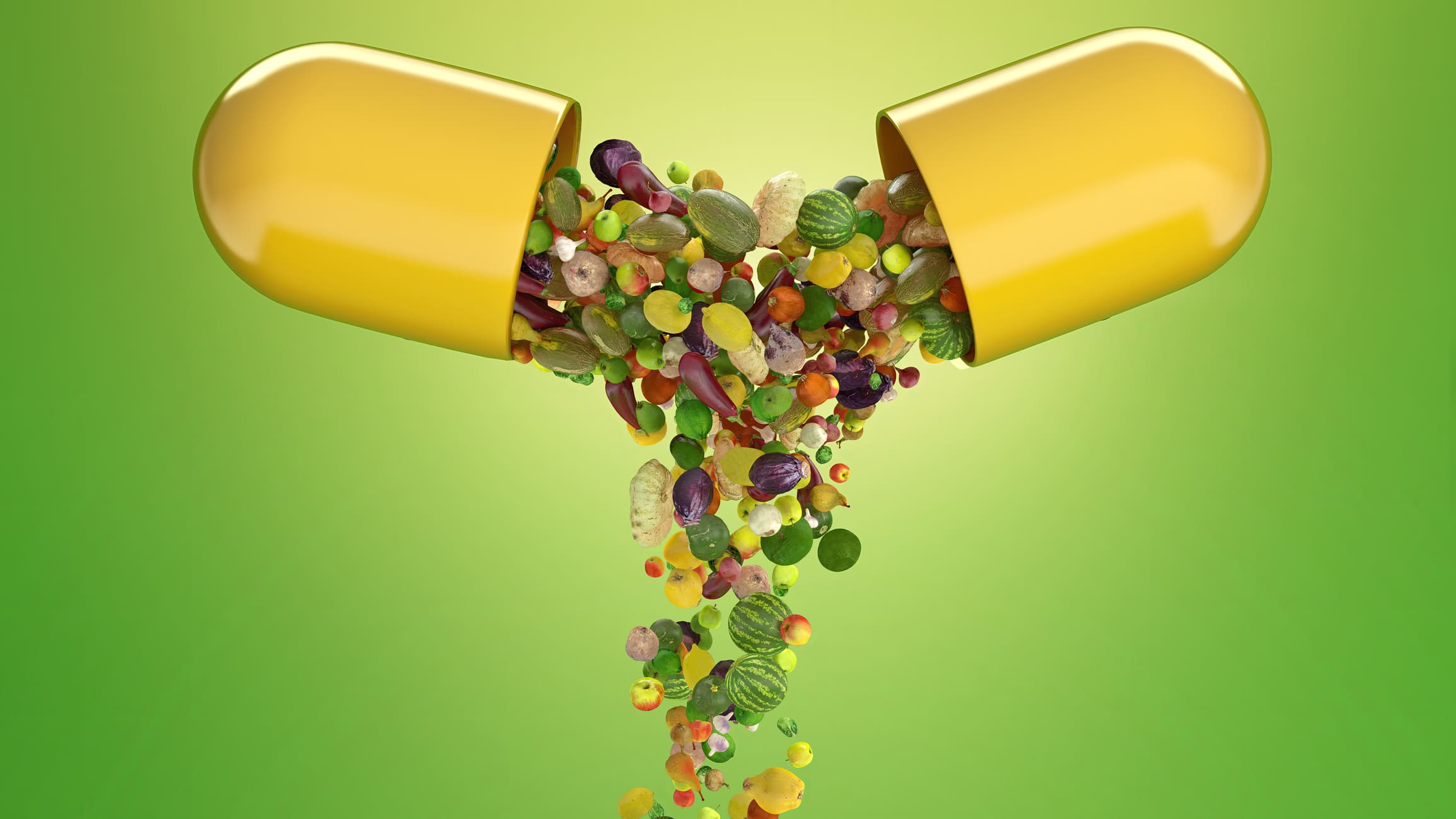
Like any other supplement, elastin supplements boost your natural elastin levels by bringing external sources of elastin into your body, which are absorbed into your bloodstream.
While other forms of elastin supplements are available (such as injections, topical creams, etc.), oral supplements are by far the most common, so we’ll be talking about those here.
Most supplements are designed to be delivered orally (i.e. swallowed) and broken down in your stomach before being absorbed by your small intestine and used by your body.
By using water-soluble capsules and bioavailable forms of elastin, these supplements allow your body to absorb a large portion of their elastin content, distributing it around the body where it is needed.
What Foods Are High in Collagen and Elastin?
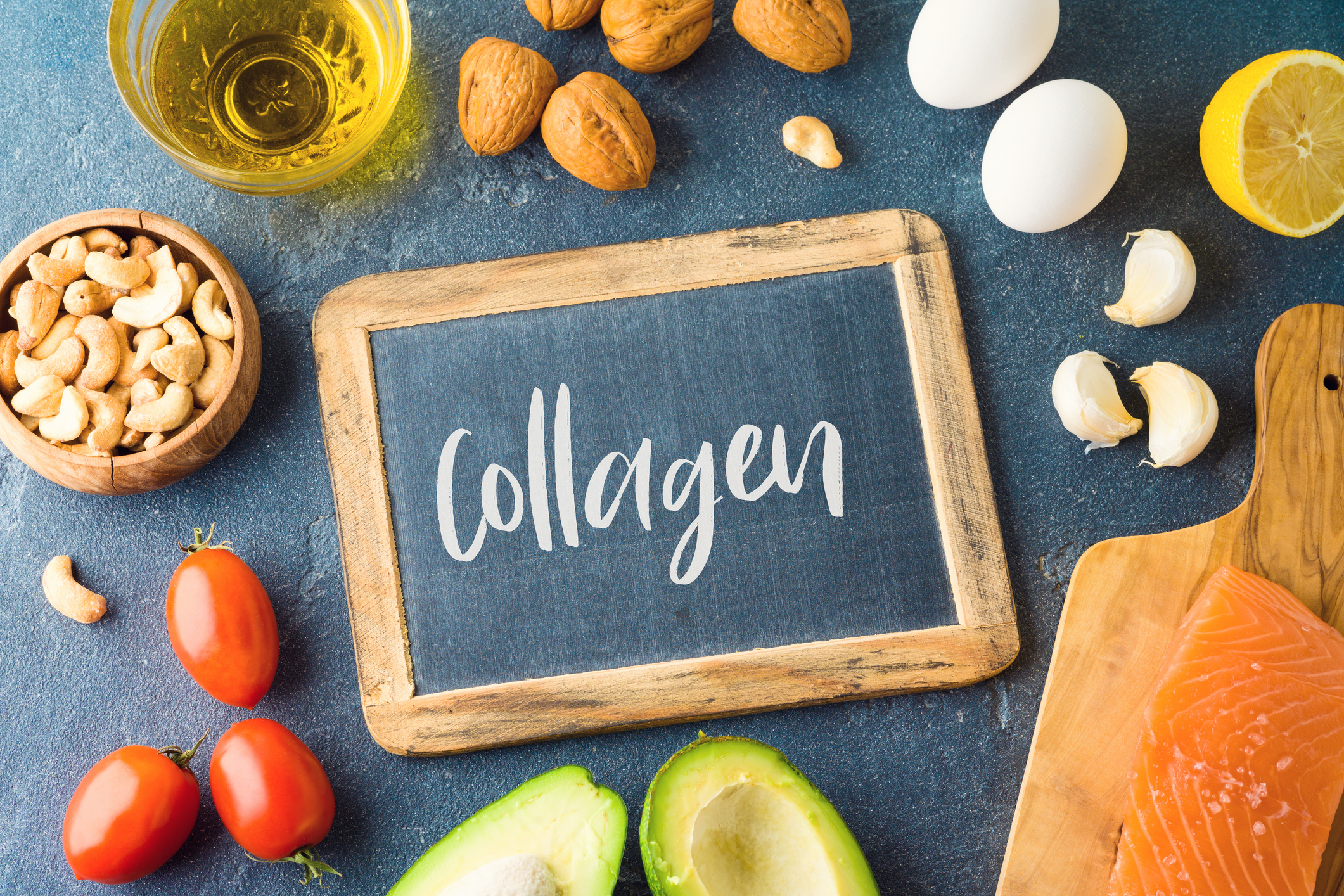
Diet plays a surprisingly significant role in the health and appearance of your skin, as your body relies on a wide range of vitamins, minerals, and nutrients to stay in tip-top shape.
While supplements might seem like the best way to get a lot of nutrients quickly, they may lack the bioavailability of genuinely nutritious foods, so you may want to swap the elastin supplements for a dinner menu.
Elastine Supplement vs Food: Which is Better?
Bioavailability – how easily your body can absorb the active ingredients of a food or supplement – is the main factor in how effective supplements are.
However, some vitamin and mineral supplements have very poor bioavailability when compared to their natural sources, so you might want to consider getting your collagen and elastin from food sources.
Many foods contain bioavailable forms of essential nutrients that your body can use right away, unlike collagen or elastin supplements, so an organic lunch could be better for your skin than cosmetics.
However, not all foods are created equal, which is why we’ve curated this list of collagen and elastin-rich foods that will help you achieve your skin goals:
Bone Broth
Made by simmering bones and connective tissue in hot water, bone broth is naturally high in calcium, collagen, amino acids, and many other nutrients, though quality can vary between recipes and batches.
Bone broth is cheap (especially if you have leftover bones), easy to make, and versatile, as you can use the broth in soups, risotto, sauces, and much more.
Chicken
A large number of collagen supplements are derived from chicken, and with good reason – this popular poultry is packed with connective tissue and collagen.
Whether you enjoy it roasted, fried, or stewed, chicken is rich in collagen and easier to fit into a balanced diet than dozens of elastin supplements or expensive anti-aging cosmetics.
Fish and shellfish
Like other animals, fish and shellfish have bones and ligaments rich in collagen, and some people even claim that marine collagen is more easily absorbed.
However, since the ‘meat’ of fish tends to contain less collagen than other, less appetizing parts (like the head and scales), fish isn’t necessarily the best dietary source of collagen.
Foods That Contribute to Collagen Production
Unfortunately, there are no vegetarian sources of collagen, though you can boost your natural collagen production by eating plenty of these collagen-boosting nutrients.
Vitamin C (found in citrus fruits and berries) is crucial for producing pro-collagen (a precursor to collagen), and egg whites are high in proline, one of the amino acids used in collagen production, just to name a few.
They may not compare to collagen or elastin supplements, but getting a balanced diet high in all your essential nutrients is a great way of keeping your skin looking and feeling healthy.
What Are The Benefits of Taking Elastin?
Though collagen might be a massive buzzword in the cosmetics world, elastin is no slouch and is approximately 1,000 times more flexible than collagen.
While collagen provides structure to the hypodermis (or inner layer) of your skin, elastin is located closer to the surface of your skin and provides much-needed elasticity.
This elasticity is what keeps your skin looking and feeling healthy, preventing premature wrinkles and sagging, but it has benefits that are much more than skin deep. Taking elastin supplements could give you a variety of health benefits, including:
Improved vascular health
As you age, your arteries stiffen and contract, which reduces blood flow and increases your risk of cardiovascular disease, though elastin can help to reverse this.
In a clinical trial of 25 people who took daily elastin supplements, scientists found that elastin significantly improved the elasticity of arteries, reducing signs of vascular aging and improving blood flow.
Healthier skin
Like collagen, elastin is vital for healthy, young-looking skin because it allows your skin cells to stretch and bounce back into shape.
Without elastin, your skin would wrinkle like cheap linen whenever you smile, so supplementing with elastin is an excellent way to reduce skin damage and prevent visible signs of aging.
Healthier joints
As a vital component of connective tissue, including your skin, cartilage, and tendons, elastin contributes to healthy joints. In addition to maintaining your joints, elastin supplements reduce joint pain and swelling, making them highly desirable for older people and those with arthritis.
Are There Downsides to Elastin Supplements?
While elastin and collagen have a wide range of benefits inside and outside of your body, the large amounts contained in supplements may have some downsides.
Of course, your mileage may vary depending on the type of supplement used, your dosage, and your desired results, but elastin and collagen supplements do have several potential side effects.
Unfortunately, we still haven’t invented the perfect anti-aging supplement, so you may experience some side effects when taking elastin or collagen supplements.
While these side effects are usually mild, you should be wary of the following downsides of collagen and elastin supplements:
High calcium levels
Collagen supplements derived from marine sources (such as shellfish or shark cartilage) contain high levels of calcium which can cause hypercalcemia.
Symptoms of hypercalcemia include bone pain, fatigue and nausea, so you should avoid taking calcium supplements with marine collagen and seek medical attention if you see any of these symptoms.
Allergic reactions
Collagen or elastin supplements may sometimes carry enough trace elements to trigger allergic reactions, though this is extremely rare.
A 2016 case study found that fish collagen caused an allergic reaction in a 30-year-old woman, so if you have any allergies, try to avoid elastin supplements derived from what you’re allergic to.
Bad taste
Because elastin and collagen supplements are often made from marine or bovine sources, they may have odors or tastes that aren’t exactly pleasant.
However, much like cod liver oil, the benefits of these supplements far outweigh the costs of having to swallow a bitter pill, so you should either try to mix your supplements into a tasty drink or grin and bear it.
Conclusion
While wrinkles and elastosis might be a natural part of aging, you don’t have to take them lying down when you can improve or recover your youthful-looking skin with collagen and elastin!
What’s more, you can find significant amounts of collagen in common food sources, such as stocks and soups, as well as in widely available supplements like the ones we recommend.
However, you should be careful when shopping for elastin supplements, as many products contain elastin from marine sources that might trigger allergic reactions.
Fortunately, elastin or collagen supplements are generally considered safe, and adverse reactions are rare, so you can enjoy improved skin health without a single wrinkle of worry on your face!

